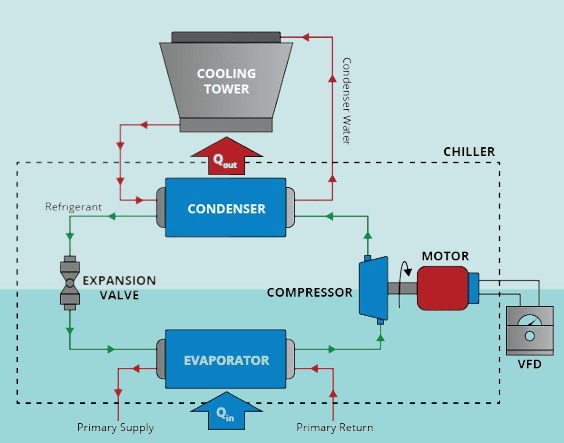#1. What is the primary function of a chiller in HVAC systems?
#2. What is the purpose of the evaporator in a chiller system?
#3. What does COP stand for in the context of chillers?
#4. In a chiller, what component is responsible for removing heat from the refrigerant and transferring it to the outside air or water?
#5. What type of chiller uses a rotating screw or scroll compressor?
#6. Which of the following is a measure of the chiller’s ability to maintain a stable water temperature?
#7. What is the purpose of the expansion valve in a chiller system?
#8. Which parameter is used to measure the efficiency of a chiller in terms of energy consumption?
#9. What is the typical range of chilled water temperatures supplied by chillers for air conditioning applications?
#10. What factor is indicated by the term “kW/ton” in chiller specifications?
#11. What is the formula for calculating the Coefficient of Performance (COP) of a chiller?
#12. If a chiller has a cooling capacity of 500 kW and a power input of 150 kW, what is its COP?
#13. If a chiller has a Chilled Water Flow Rate of 1000 gallons per minute (GPM) and a Delta T of 10°F, what is the cooling capacity in tons? (1 ton = 12,000 BTU/h)
#14. What is the purpose of a VFD (Variable Frequency Drive) in a chiller system?
#15. Which type of chillers is known for providing high efficiency at partial load conditions?
#16. How does the Coefficient of Performance (COP) relate to the efficiency of a chiller?
#17. What is the purpose of the condenser in a chiller system?
#18. What is the function of the bypass valve in a chiller system?
#19. What is the primary difference between air-cooled and water-cooled chillers?


